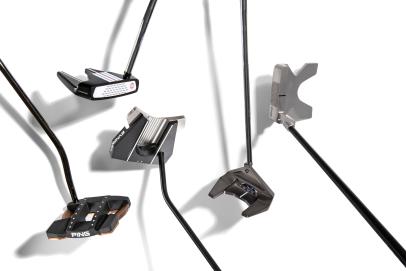Hot List
The heaviest- and lightest-feeling putters, according to golfers of every ability
The weight of a putter is, of course, a very knowable and measurable thing. If you look at every putter model on the Hot List, mallet or blade, there is a very clearly defined weight range for the head that is detailed under its specifications. Generally, except for overlength, armlock-style or long putters, head weights for putters reside in a fairly common range of 345-365 grams. Throw in the typical weight of a putter shaft and the typical weight of a putter grip (again these generally don’t vary by much if at all), and the universe of standard length putters seem to weigh about the same.
For our players at the Hot List, however, when we talk about a putter being light or heavy, we’re not really talking about grams or ounces. What we’re trying to get at is what we call “heft.” Basically, this is the general feel in a player’s hands of the collection of components of a putter, combined with its particular mass properties like how far back the center of gravity might be or even the stability of the head and its overall resistance to manipulation during the stroke. Heft can be a function of swingweight or the putter’s overall balance point, but in simple terms, we’re trying to arrive at a consensus of how easy it is to control a particular putter, or in general the putter models within a specific family.
In our scale, players evaluated the heft of each putter on a “1" (light) to “5” (heavy) scale. (For clarity, players rated all the blade putters during one session, then rated all the mallet putters during a different day’s session.) Another way to think of this scale is to put those near “1" as having a very light feel almost to the point of losing sense of where the head was during the stroke, while those on the extreme “5” side of the scale could be viewed as cumbersome or bulky or unwieldy.
As you review these putters’ individual descriptions, you likely will notice that the heft ratings tend to hover on one side or the other of the midpoint between heavy and light. With our 32 player panelists, we think it is not accidental that all the putters are rated closely to one another. That said, when the general tipping point leans toward one side, we believe that’s a feeling the universe of average golfers will recognize, too.
It is in that vein that we present the blade and mallet putters on this year’s Hot List that our players found to be the heaviest and lightest feeling.
Blade putters
Lightest-feeling
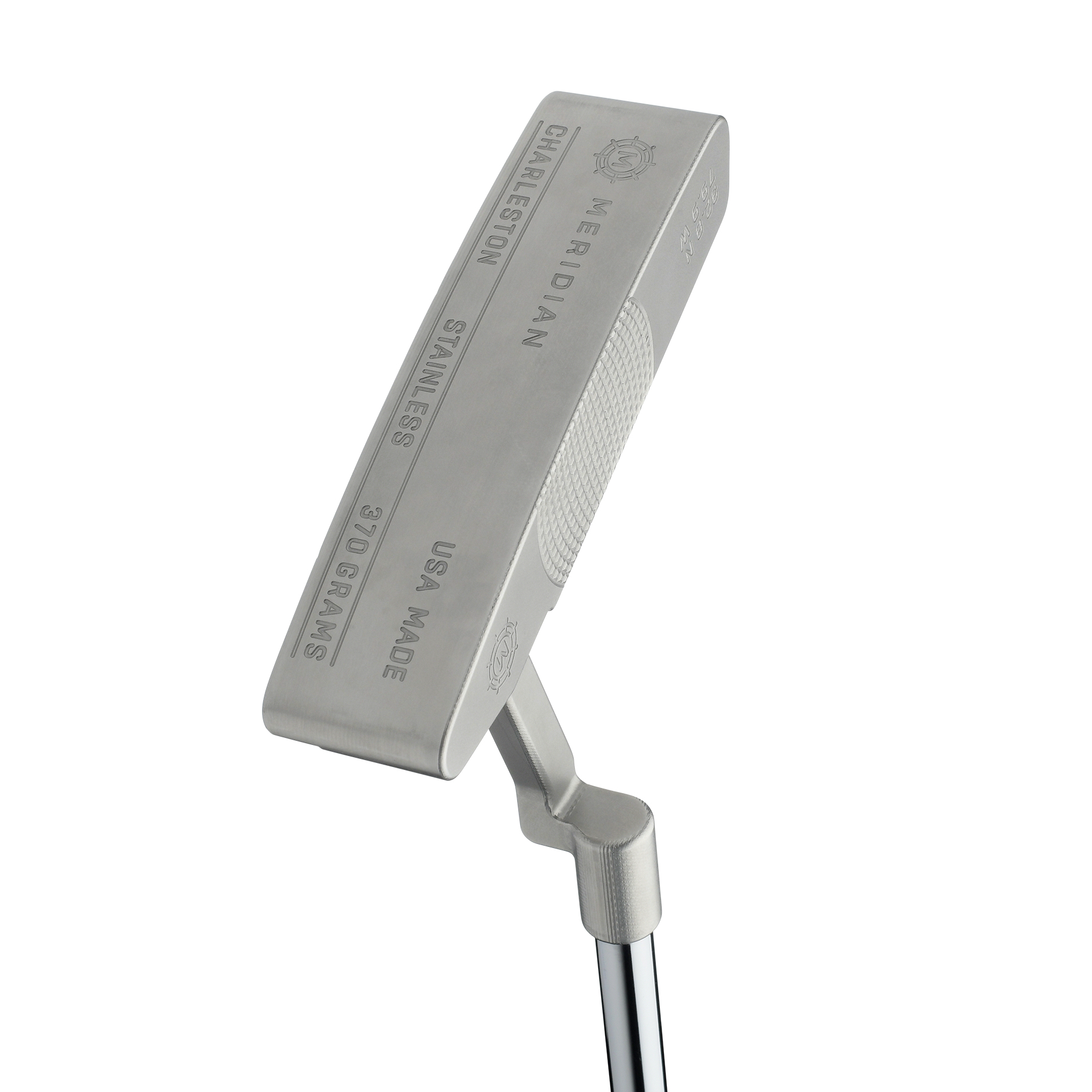
Golf seems smitten with milled putters as if they were some kind of farm-to-table quiche pan. Meridian takes your artisanal-cheese swooning and makes its finished tool more practical and technologically efficient. Rather than milling putters one at a time, a special process might cut a dozen or more blades out of that single block at once. Those blanks are then finished with another precise milling process that includes three face patterns for three different feels. All that mass customization takes these delightfully authentic blades to a place rarely seen in golf today: affordability.
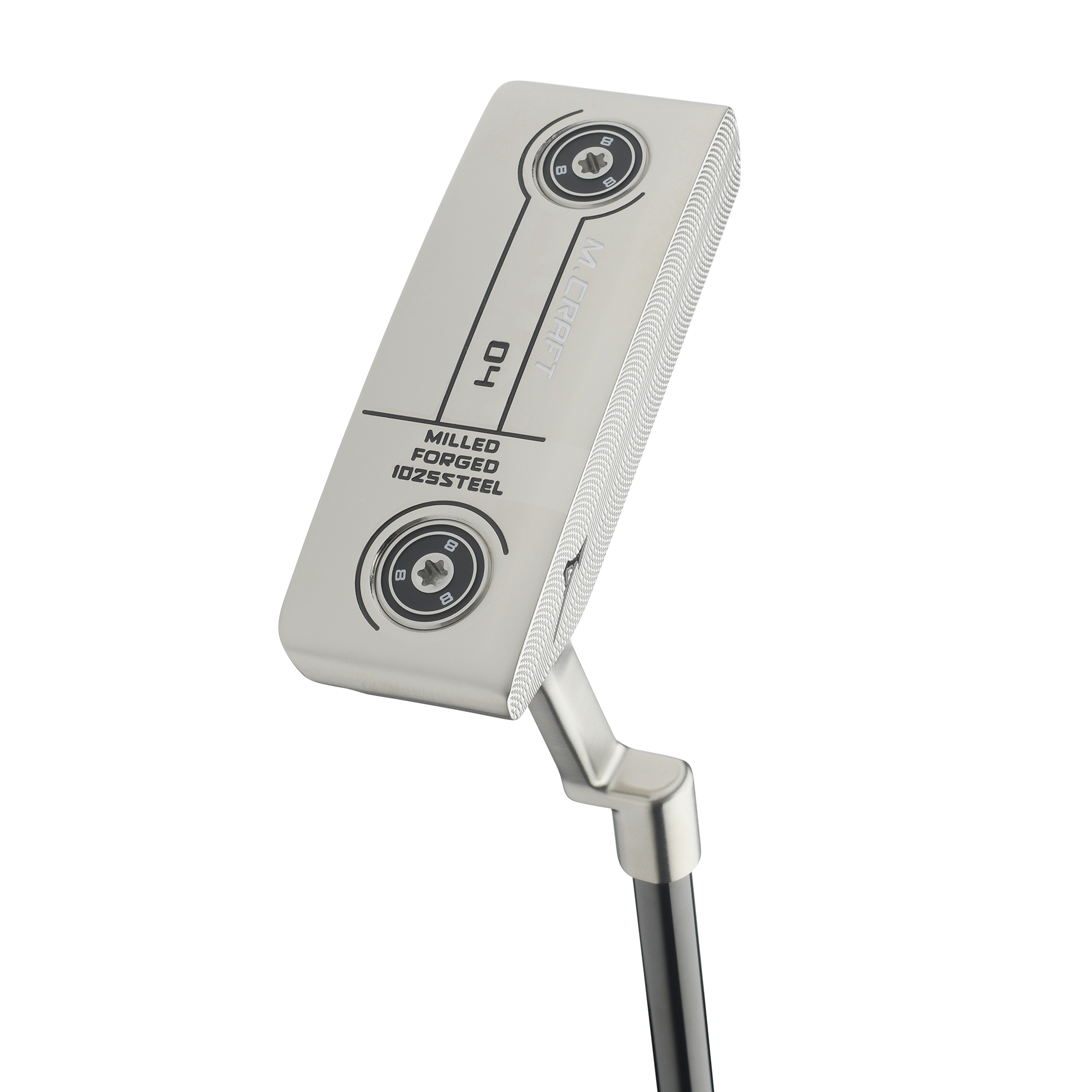
As greens have gotten faster, and average putting strokes have gotten yippier, putterheads in response got heavier. When Mizuno’s team, which had offered a weight kit with its original M.Craft lineup, saw more users opt for the heaviest possible configuration of those weights, the OMOI was born. The stock heads are almost 20 grams heavier than some standard models, shifting the club’s balance point lower and leading to more consistency in face rotation. One other thing all yippy putters need is more forgiveness on off-center hits.
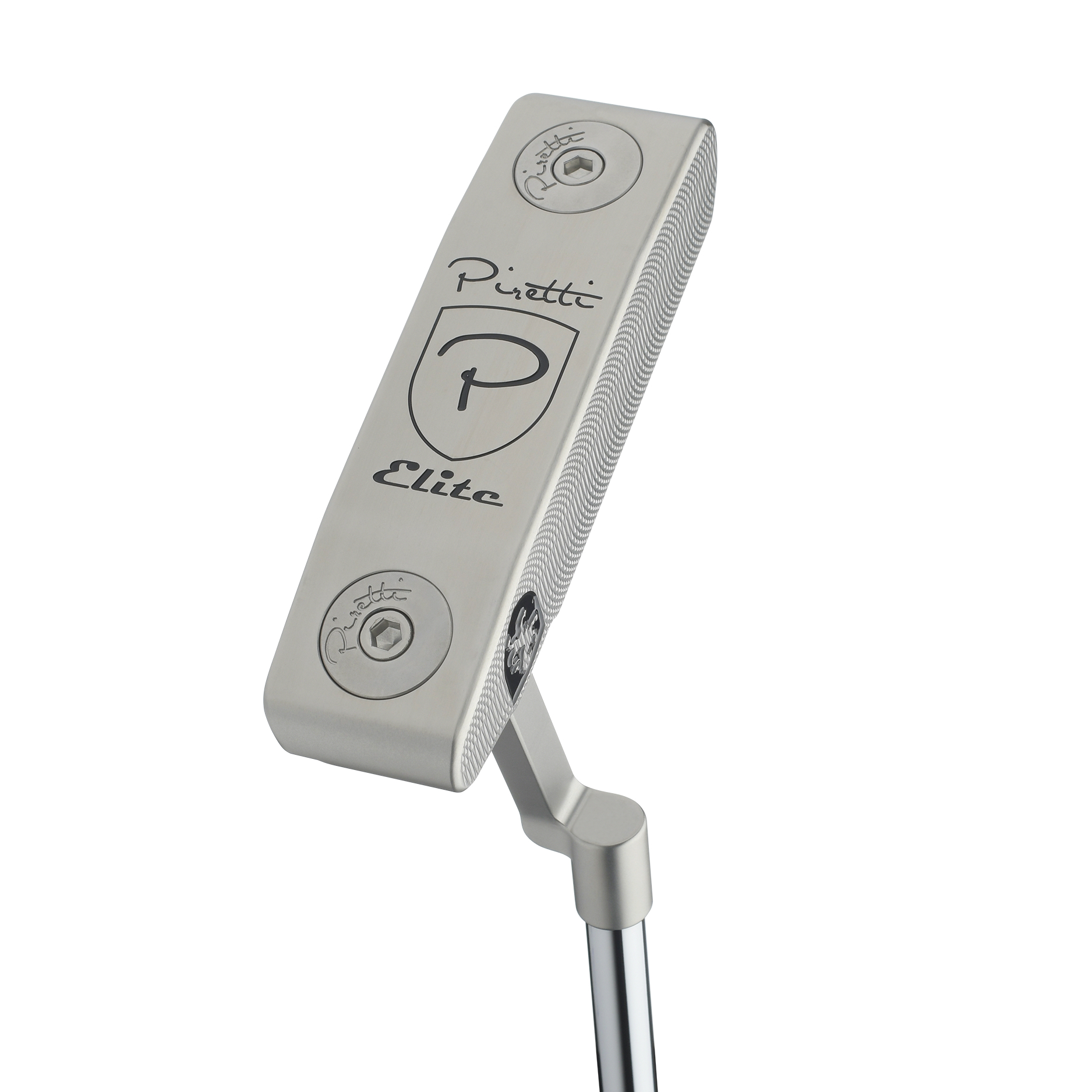
Piretti’s Mike Johnson knows the iconic Anser shape started as a more technically precise putting tool before becoming a jewelry piece in recent years. He prides his milled-blade designs on their artistic approach to form, but he believes function plays an equal role. That’s why these blades feature heavier heads to smooth out strokes on today’s faster greens, sole weights so that those head weights match shaft lengths and a 2.5-degree loft angle to better align with modern mowing heights.
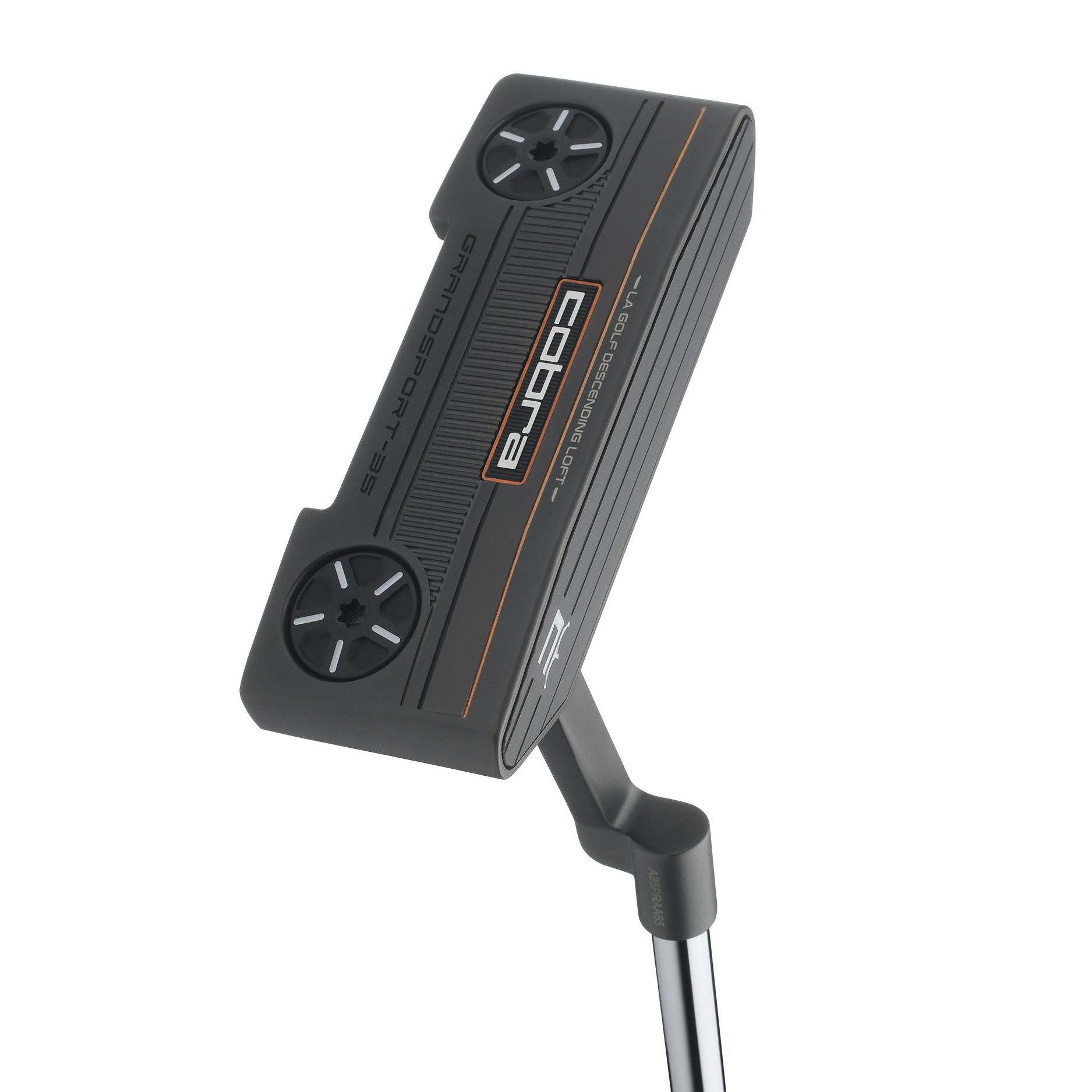
Computer-driven 3-D printing has been part of golf-club prototype design for two decades, but it had no practical value in making finished clubs. Cobra’s engineers found a way to 3-D print certain parts that could not be cast, forged or machined by traditional means. The intricate nylon lattice structure in the heel and toe sections is one-seventh the density of steel yet provides a stable core that supports the heavier materials around it. The support provided by the 3-D printed section damps vibration for better sound and feel.
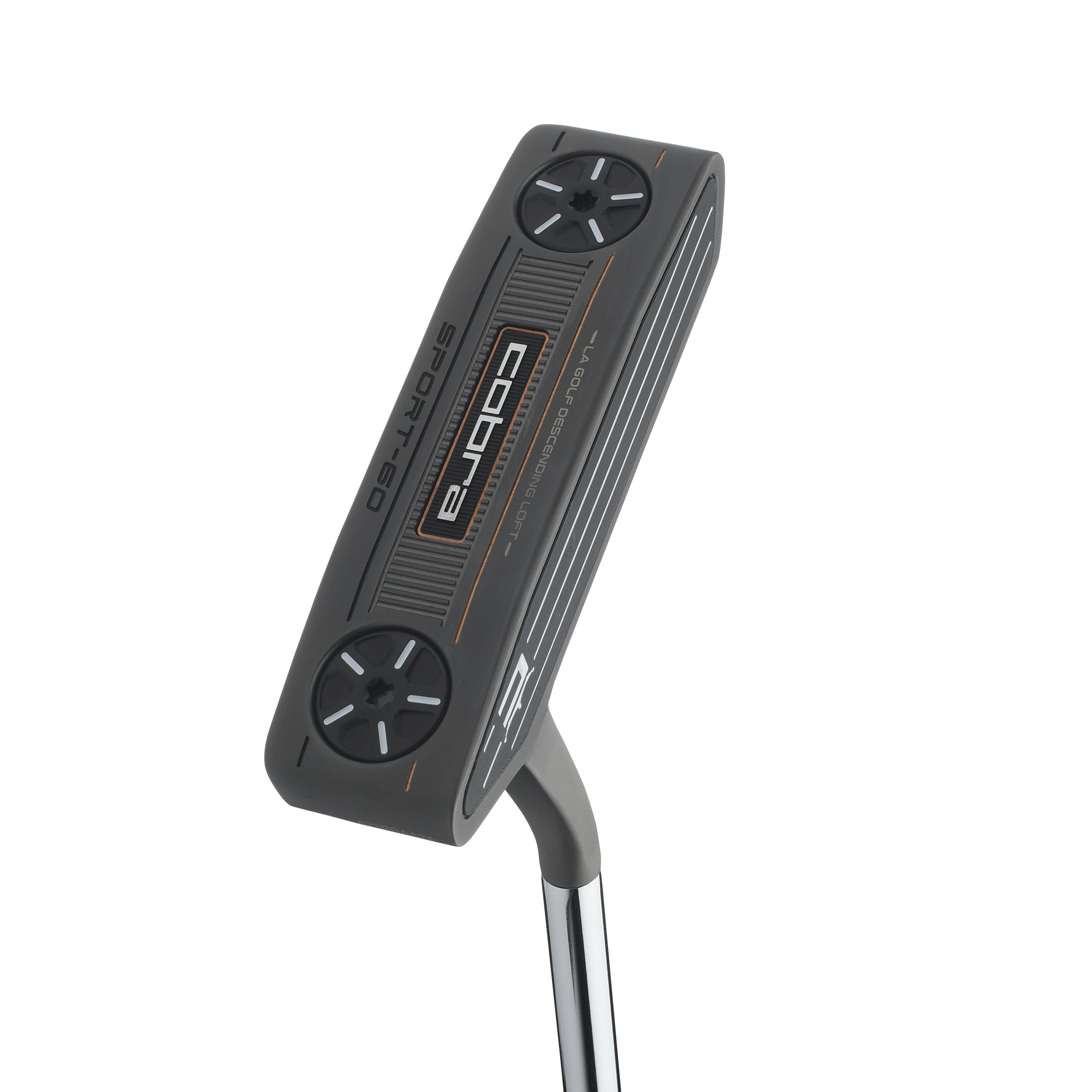
Putters usually don’t come up in the rollback discussion, but the insert used in these relatively traditional-shaped blades might raise an eyebrow. Light, soft and flexible Pebax is a “block copolymer” that has been referred to as “technological doping.” This has to do with its use in running shoes and its ability to be soft and resilient in terms of energy return. That’s a good thing for a putter seeking consistent roll out on mis-hits. Of course, it also helps that the insert varies loft from top to bottom for a skid-free consistent launch.
Heaviest-feeling
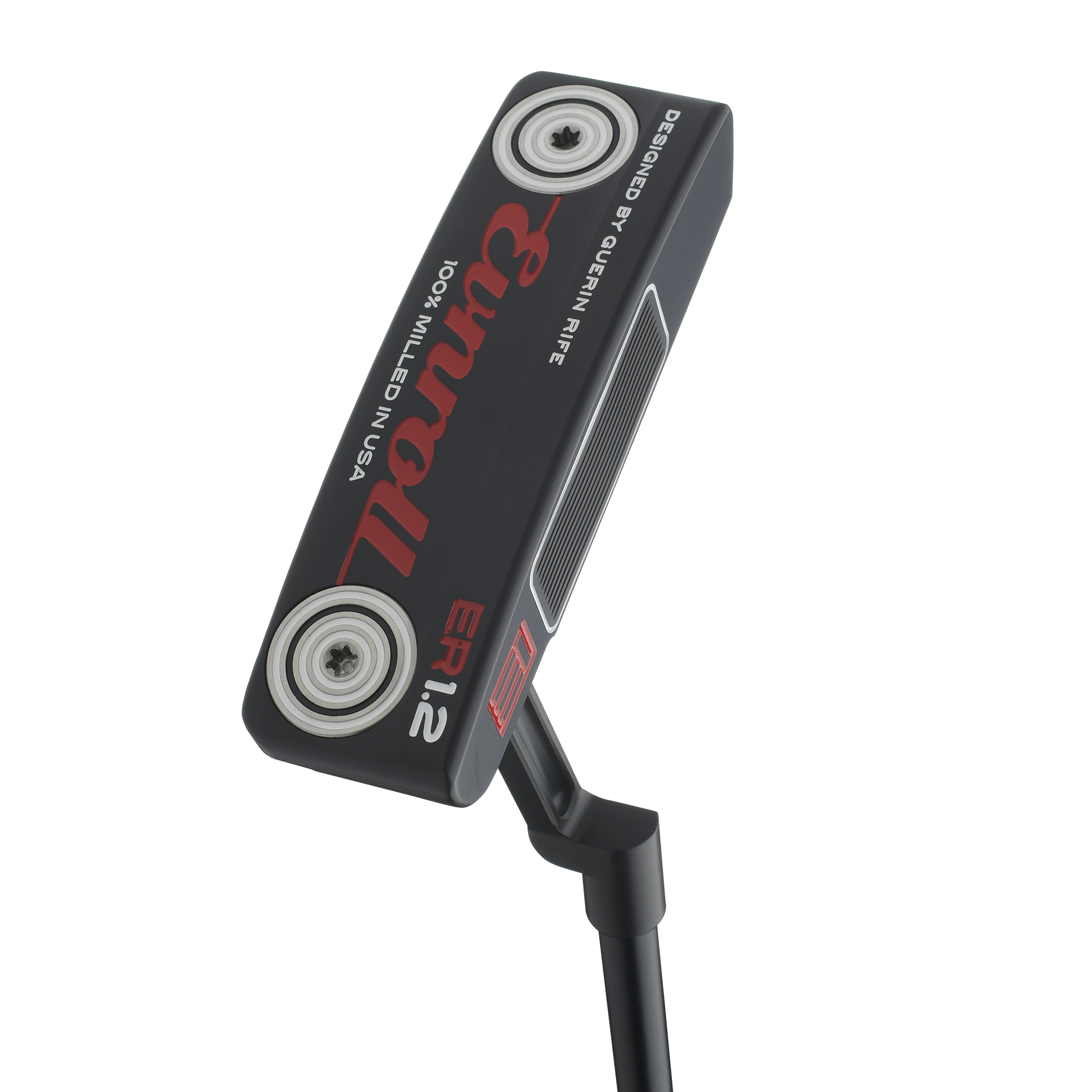
When Evnroll founder and longtime putter designer Guerin Rife first designed a putter with grooves, players consistently left putts short because the grooves softened the energy transfer at impact. Change the design of the grooves, he reasoned, and he could better control ball speed across the face. Rife continues to refine that idea on these classic blades with a soft aluminum face insert that produces consistent distance and direction.
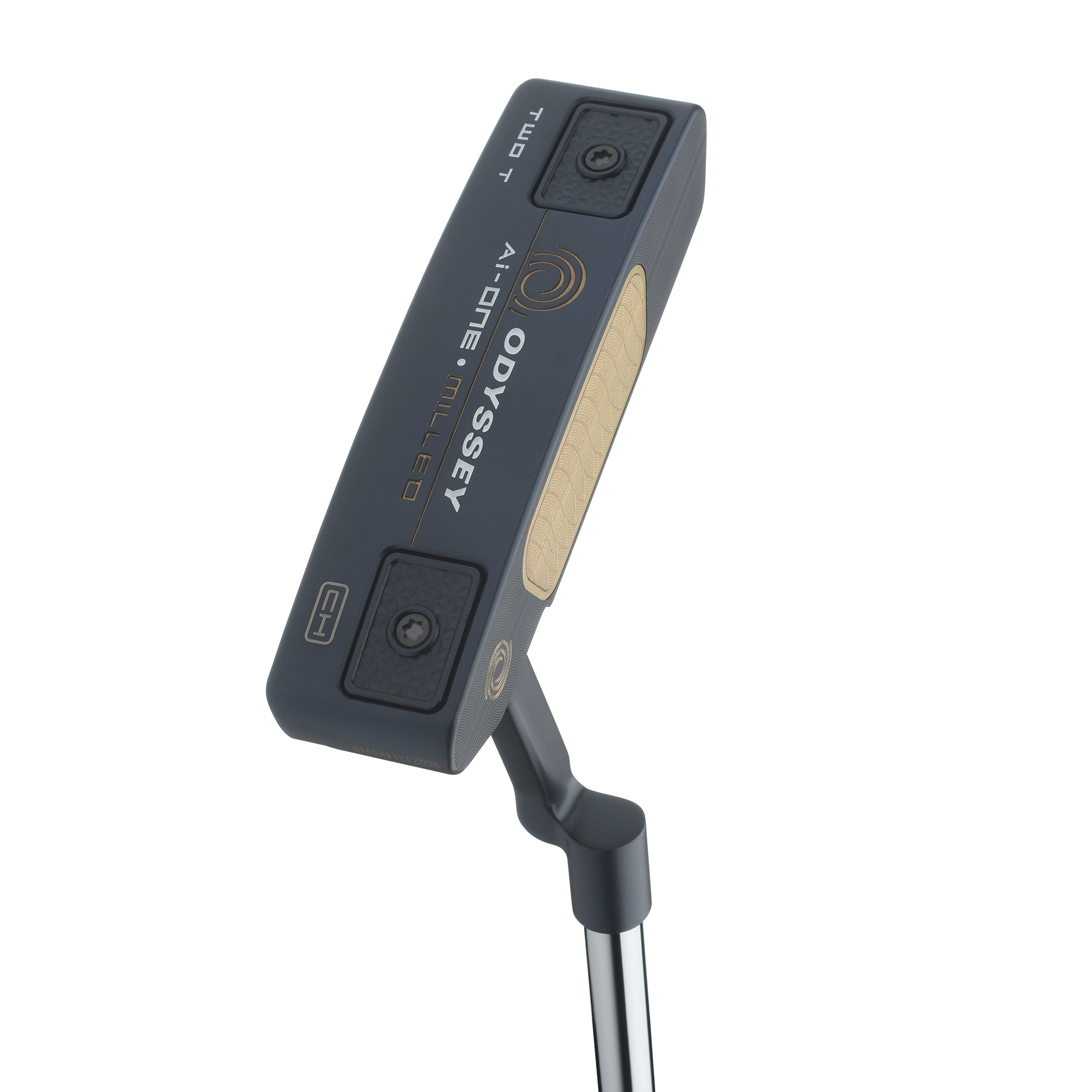
A titanium face on a putter would seem to make as much sense as a 6.2 liter V8 Hemi in a Dodge Caravan. Titanium is what makes driver faces hot, and a hot putter face seems like a recipe for binge drinking, but think again. Titanium is thin, light and strong—the kind of alloy that has great flexure properties. Flexing matters when you’re trying to create a putter face that intricately responds to the slightest variations in thickness, all created through artificial-intelligence simulations. Those thicknesses yield similar roll across the face.
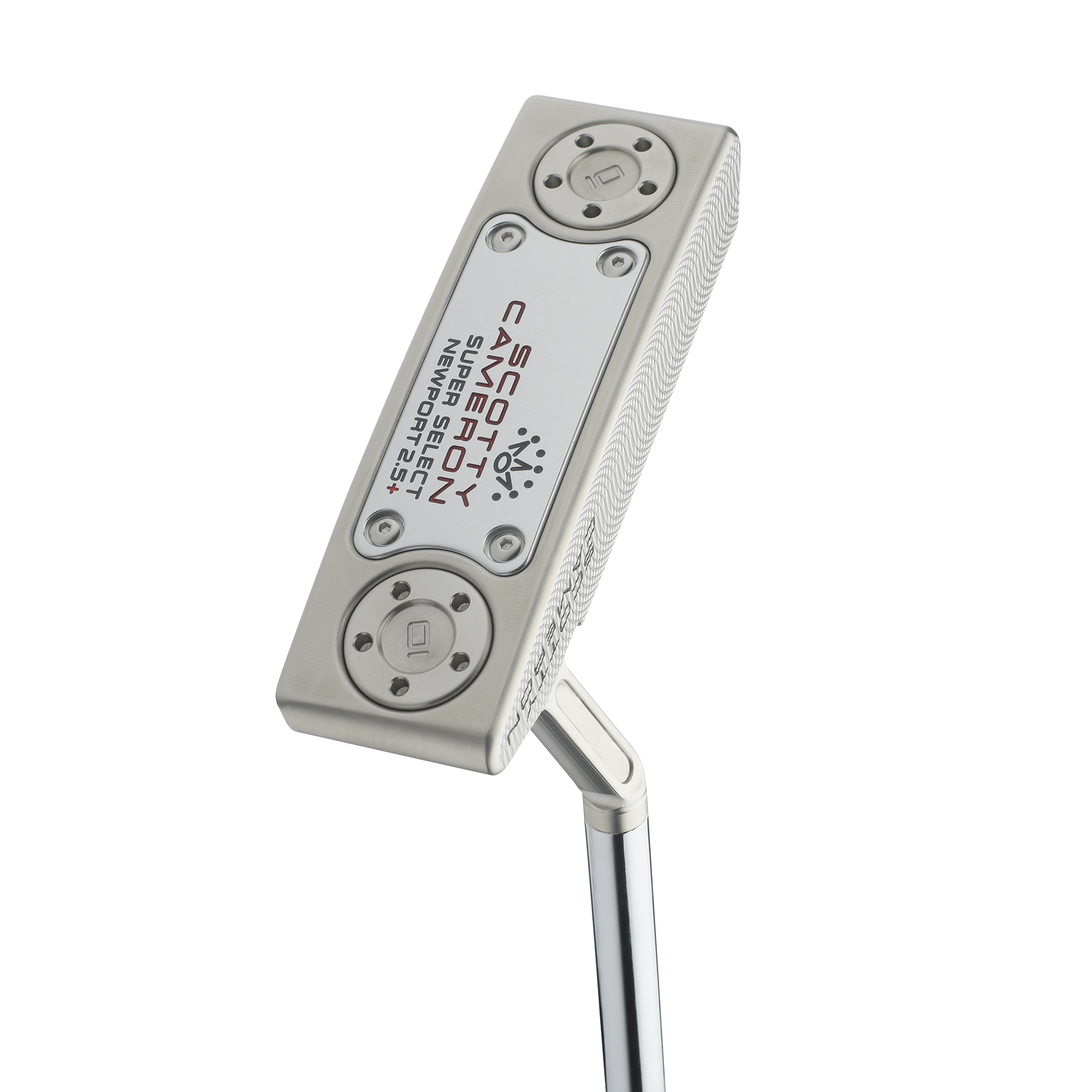
Someday we want someone to talk about us the way Scotty Cameron talks about his putters. His tone about these blades seems to emanate from a cathedral, and why not? Their dominance in the milled-blade marketplace isn’t an accident. Cameron and his team comb over every detail and resource to improve these designs without changing them. Subtle tweaks like milling out sections of the plumber’s neck and the iconic “cherry dots” redistribute mass to heel and toe sole weights. Cameron says that makes his blades “as forgiving as a large mallet.” Sweet talker.
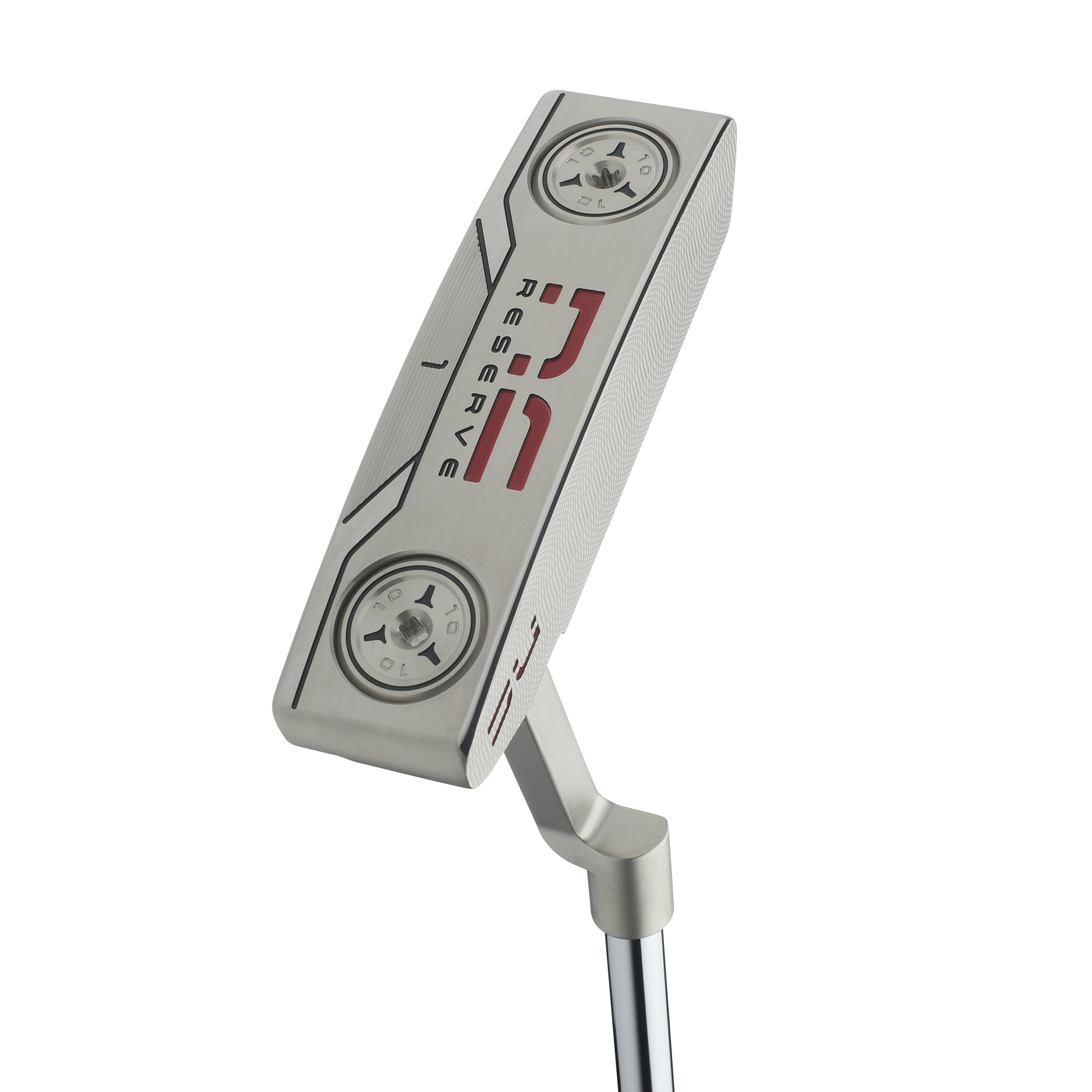
Golf’s equipment landscape is awash in things that make no sense, and the biggest one might be how few golfers get fit for a putter. A Golf Datatech study showed that driver fittings outnumber putter fittings by more than three to one. Given you’re putting more than twice as often as you’re driving, perhaps it’s time for a reset. Enter Never Compromise, which makes a proper shaft length as automatic as eighth-grade geometry. The system includes getting that cut-to-order shaft length on your new putter almost instantly.
Mallet putters
Lightest-feeling
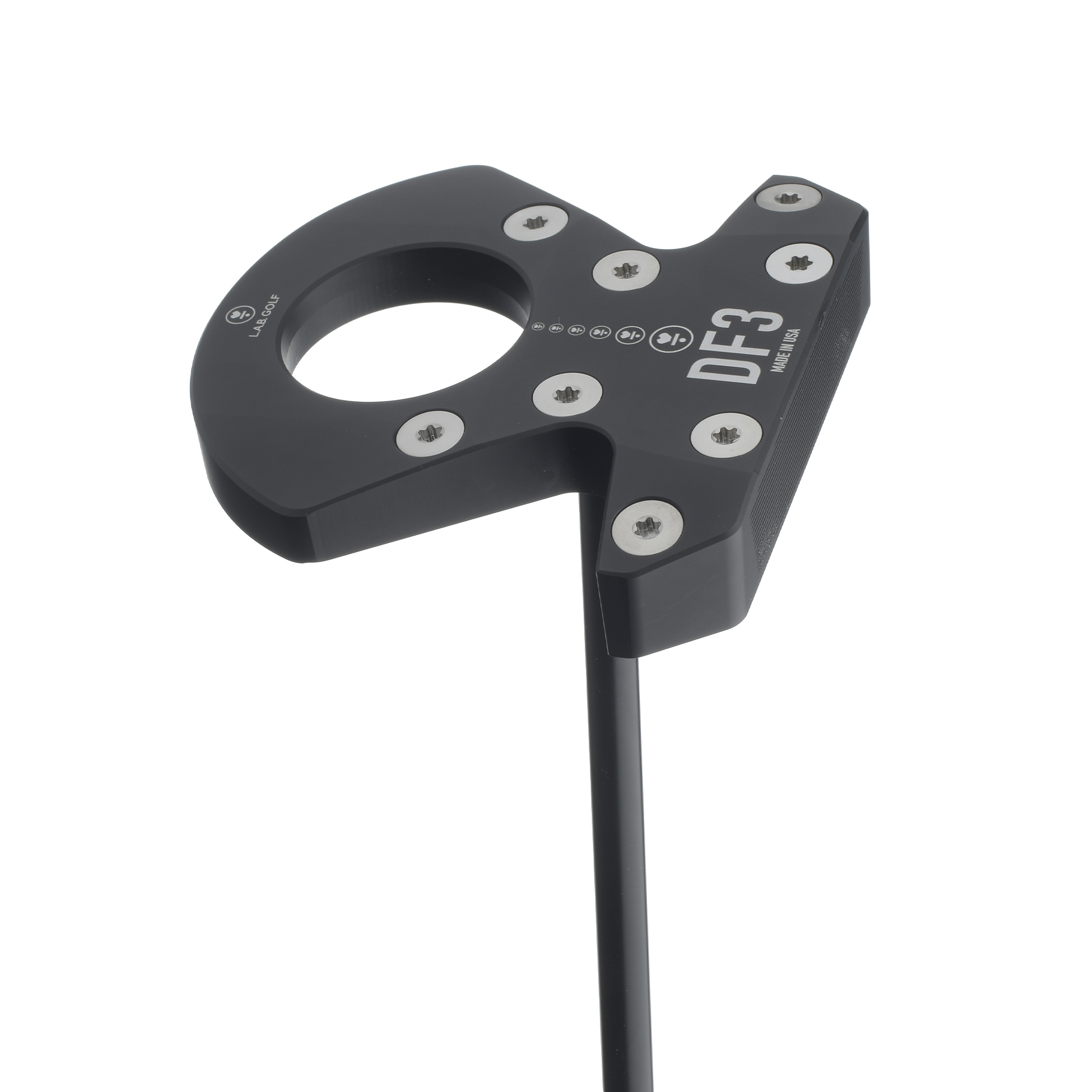
The musical “Shrek” reminds us that we need to raise our freak flag high because, to paraphrase, weird for a purpose works. L.A.B. Golf’s putters are a good example in golf. Their distinctive looks belie a foundational idea that is irrefutable: If a putter’s weighting keeps it square to its lie angle (like this one does with its sole-weighted aluminum body), it’s going to square up. The company’s original Directed Force putter reveled in that idea, and this third generation continues in the same freakish but sleeker shape.
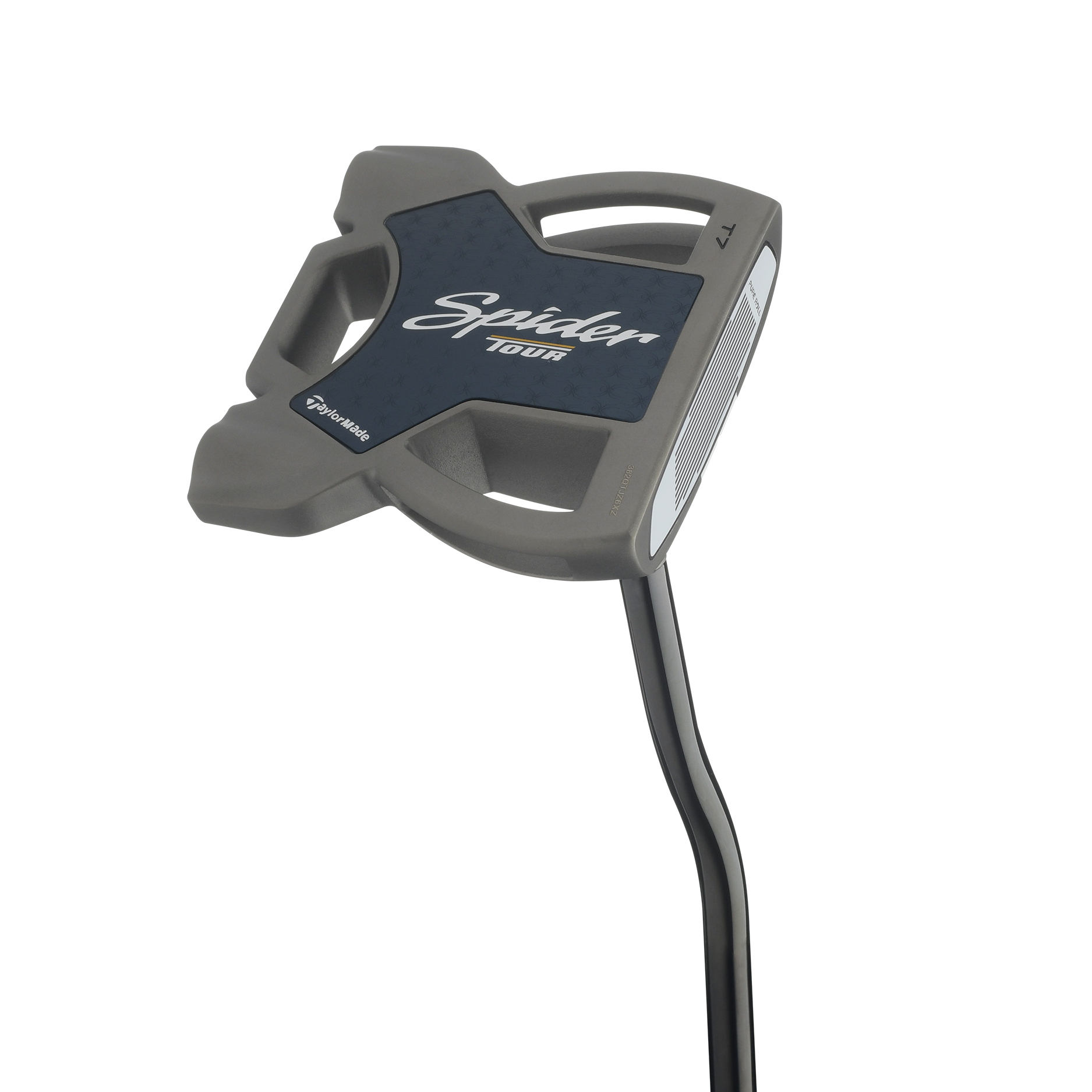
TaylorMade returns to the core shape of its Spider from five years ago, one of the most successful versions of the mallet brand that has become an icon. What’s intriguing is from that base model, the company is launching a collection of five versions that share the same concepts of high stability with clear alignment and a face with grooves to enhance initial roll. Helped by research in recent years that shows how different players respond to center-of-gravity depth, each model pushes weight selectively back or forward.
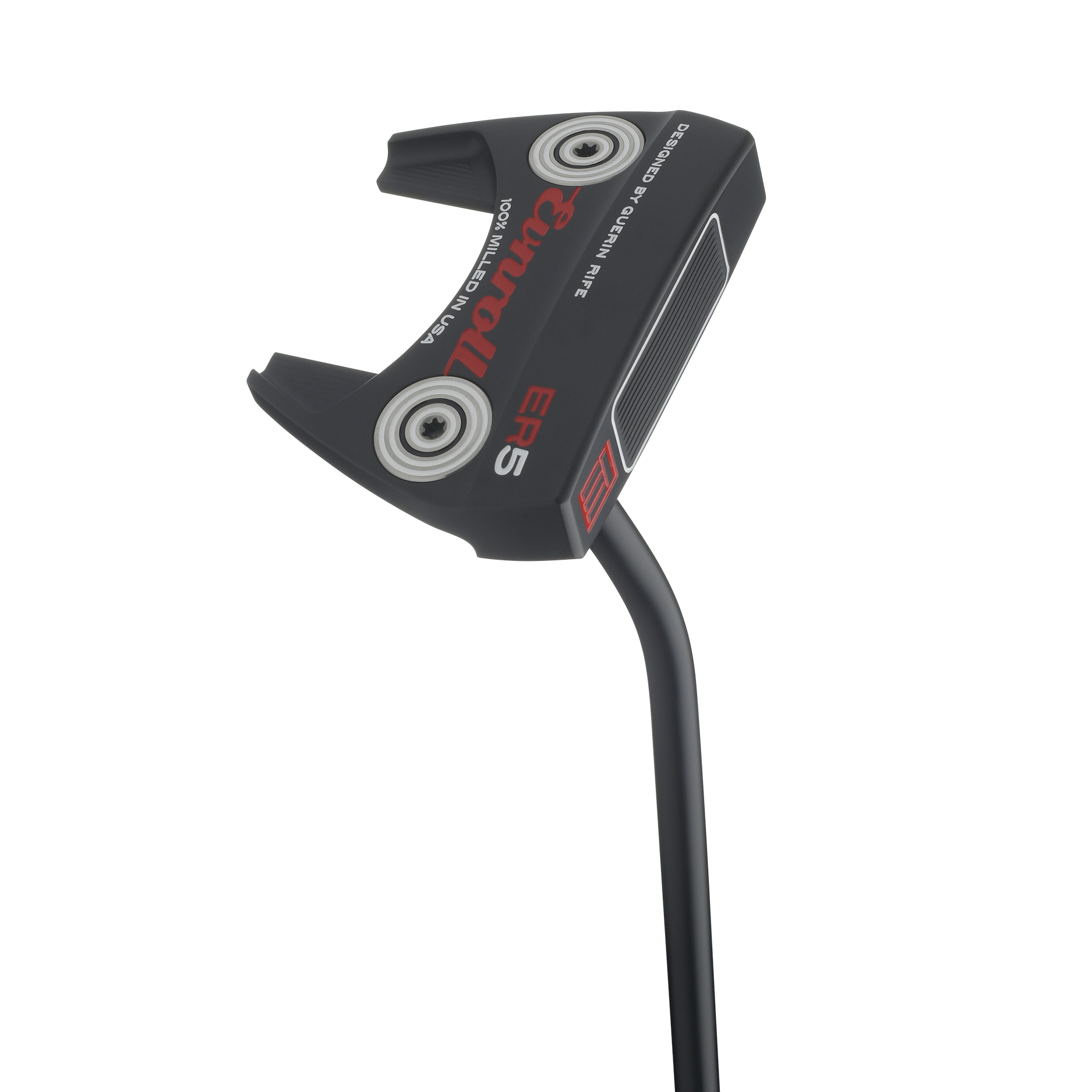
We like mallet putters the way we like grandmothers: They’re so forgiving. Sometimes, though, attempts at forgiveness in a mallet go too far. These traditional shapes get it right. Unlike extreme heads that require substantial mass deep in the perimeter, these classic looks find forgiveness in a grooved face insert. The spacing and individual widths create consistent energy transfer across the face, so like grandma’s change purse full of rare silver dollars, the forgiveness is bigger than it looks.
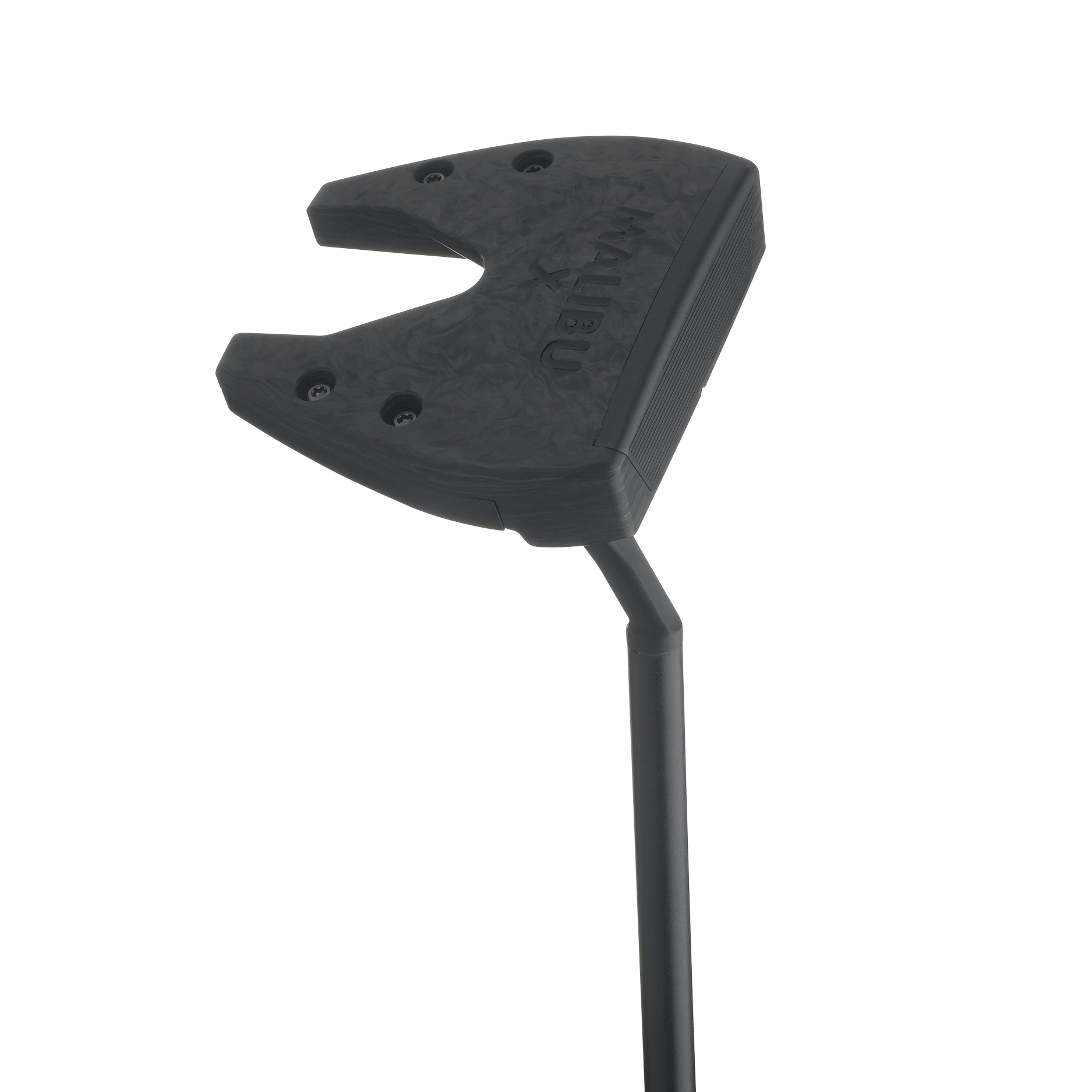
Moment of inertia sounds wonky, but it’s simple: “Replace heavy with light wherever you can. Then redistribute heavy to make the head deliver consistent speed for every impact.” LA Golf’s mallets get rid of “heavy” in the body, replacing it entirely with “light” (carbon composite, which is five times less dense than steel). This frees up room to redistribute “heavy” (super dense tungsten) at the tips of this pronged mallet. The result is ultra-high MOI, or stability on off-center hits so that your worst hits still roll close to your best hits.
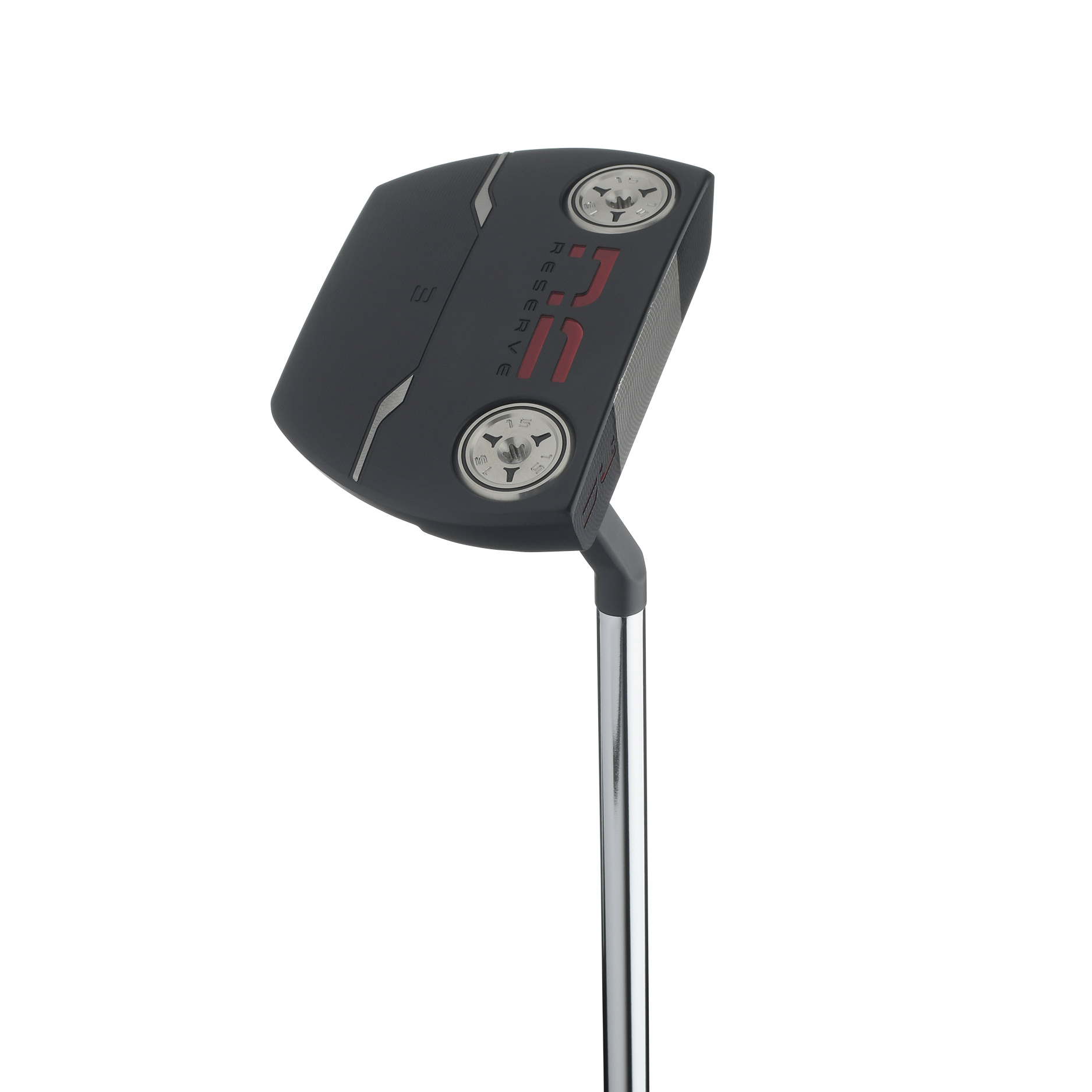
Pythagoras may not have discovered the theorem about the lengths of the sides of a triangle—it was probably the Babylonians—but that ancient wisdom just might unlock putter fitting. Never Compromise borrows that triangle science to get every golfer a custom-fit putter in five quick steps. Perfected by noted instructor Todd Sones, it dials in the proper shaft length by finding the hypotenuse formed by how far you stand from the ball and the height of the grip in your hands. The only downside: Neither Pythagoras nor the Babylonians revealed any secrets about avoiding the three-putt.
Heaviest-feeling
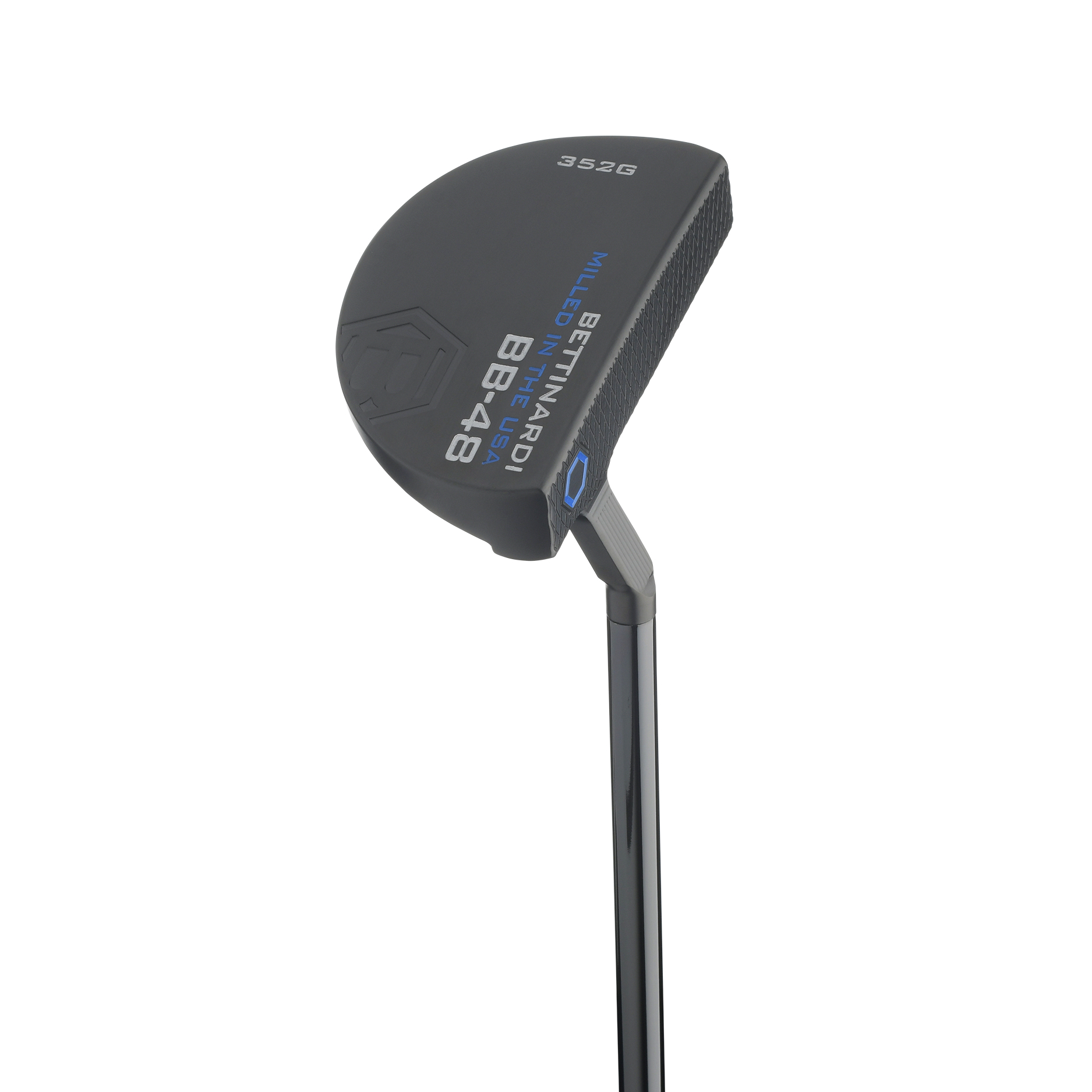
The appeal of Bettinardi’s putter shaping is that the designs look like something from a simpler era. The company’s milling process, however, is built on a seamless blending of old-world vision and modern-day precision. The face’s flymill pattern creates a uniform feel, sound and control from heel to toe. The subtle sloping of the shoulders in the back flange frames a ball-width cavity and centers the putterhead’s mass to stabilize aim and stroke.
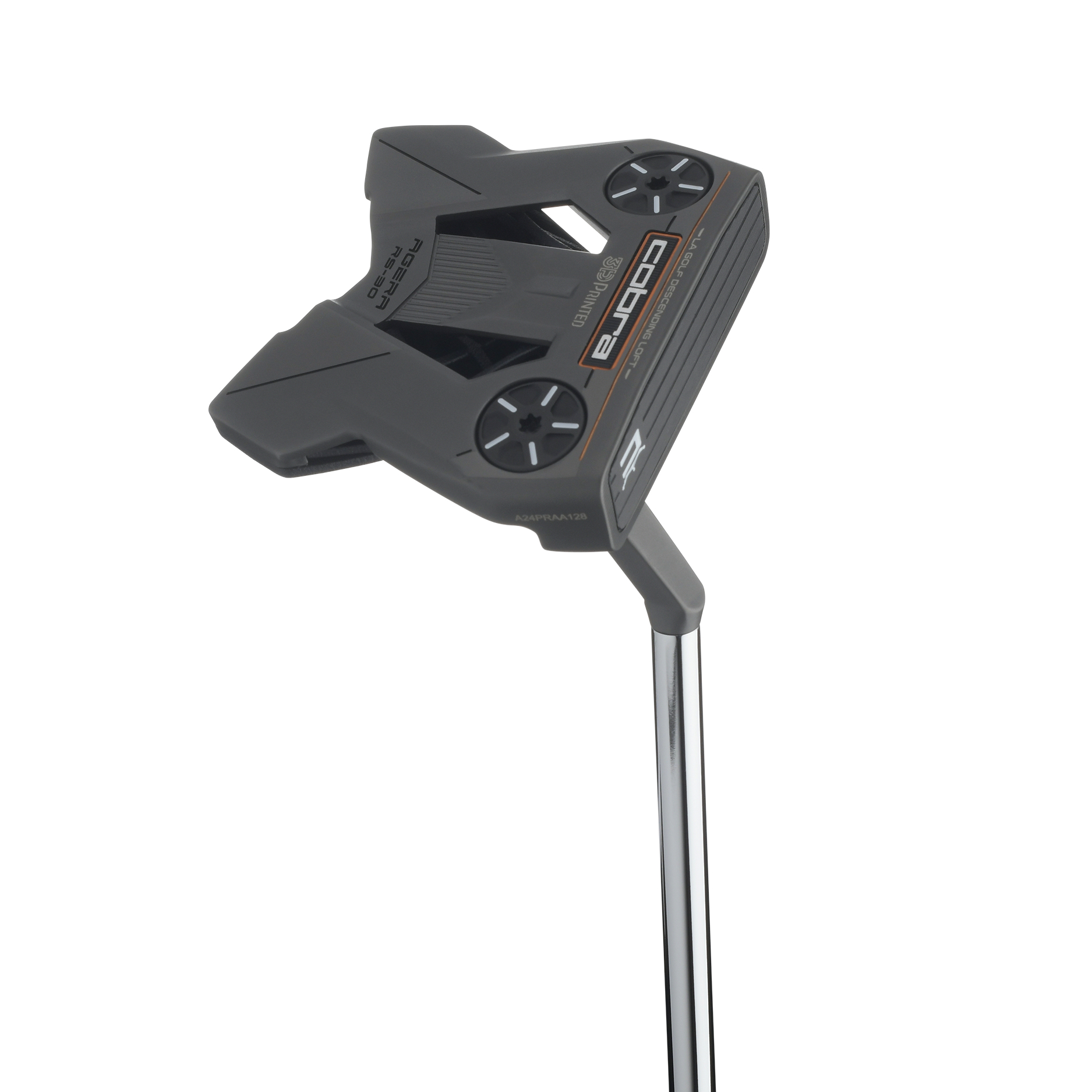
As any 6-year-old schooling us at Volcano Mini-Golf reminds us, putting is easy. Cobra knows better, and that’s why these putters are engineered to compensate for erratic strokes. Custom 3-D printed internal structures save mass that is used to monumentally increase stability on off-center hits for better distance control. The face has staggered lofts from top to bottom to ensure that wherever we make contact, our putts launch the same way. Take that, rug rat.
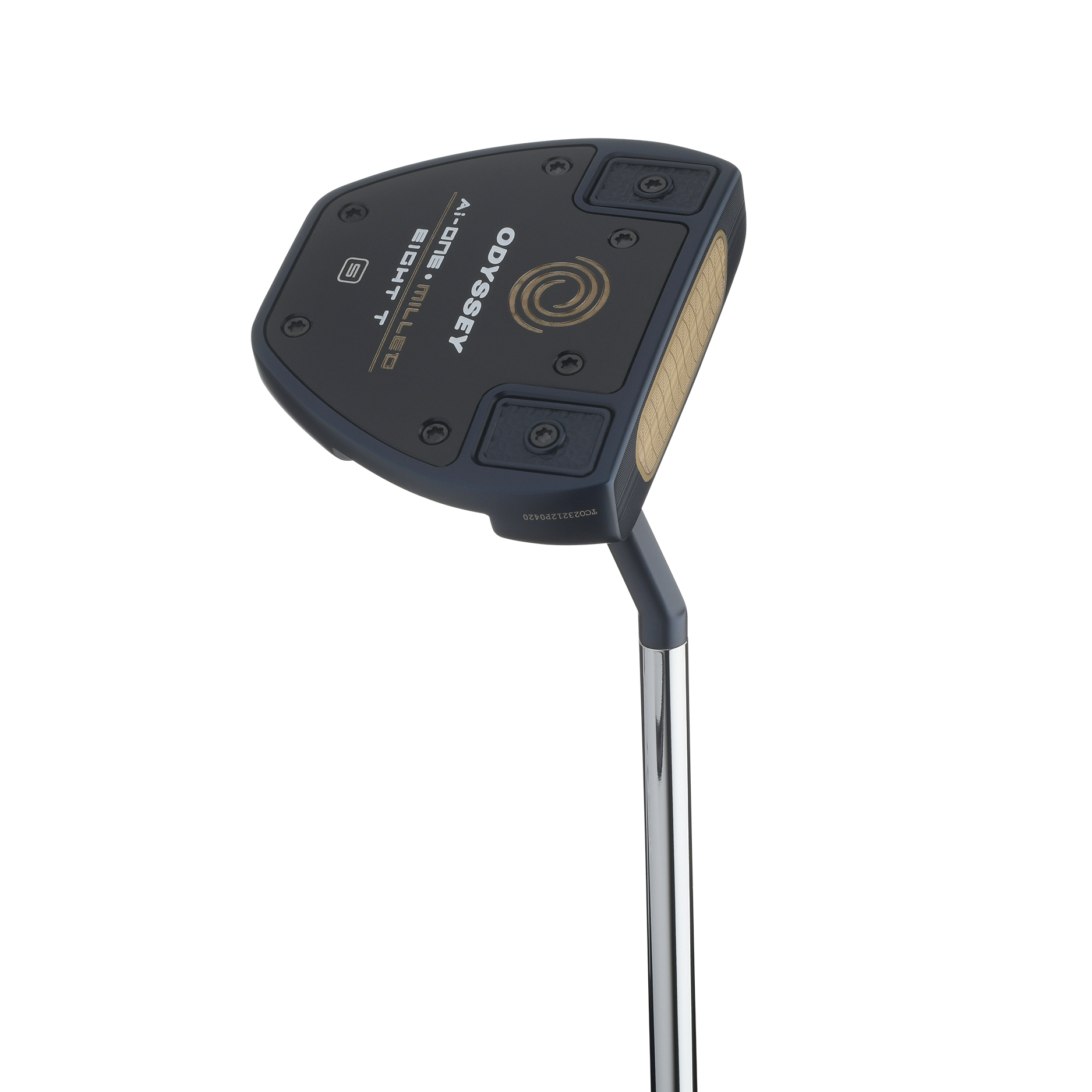
To design its putter face Odyssey’s engineers looked to titanium for its light weight, strength and flexibility. They needed the face’s intricately varied indentations—designed through a range of artificial-intelligence simulations—to respond to every impact like a high-performance race car moving across an undulating road. These titanium faces have “micro-deflections” to direct energy to the ball for consistent distances.
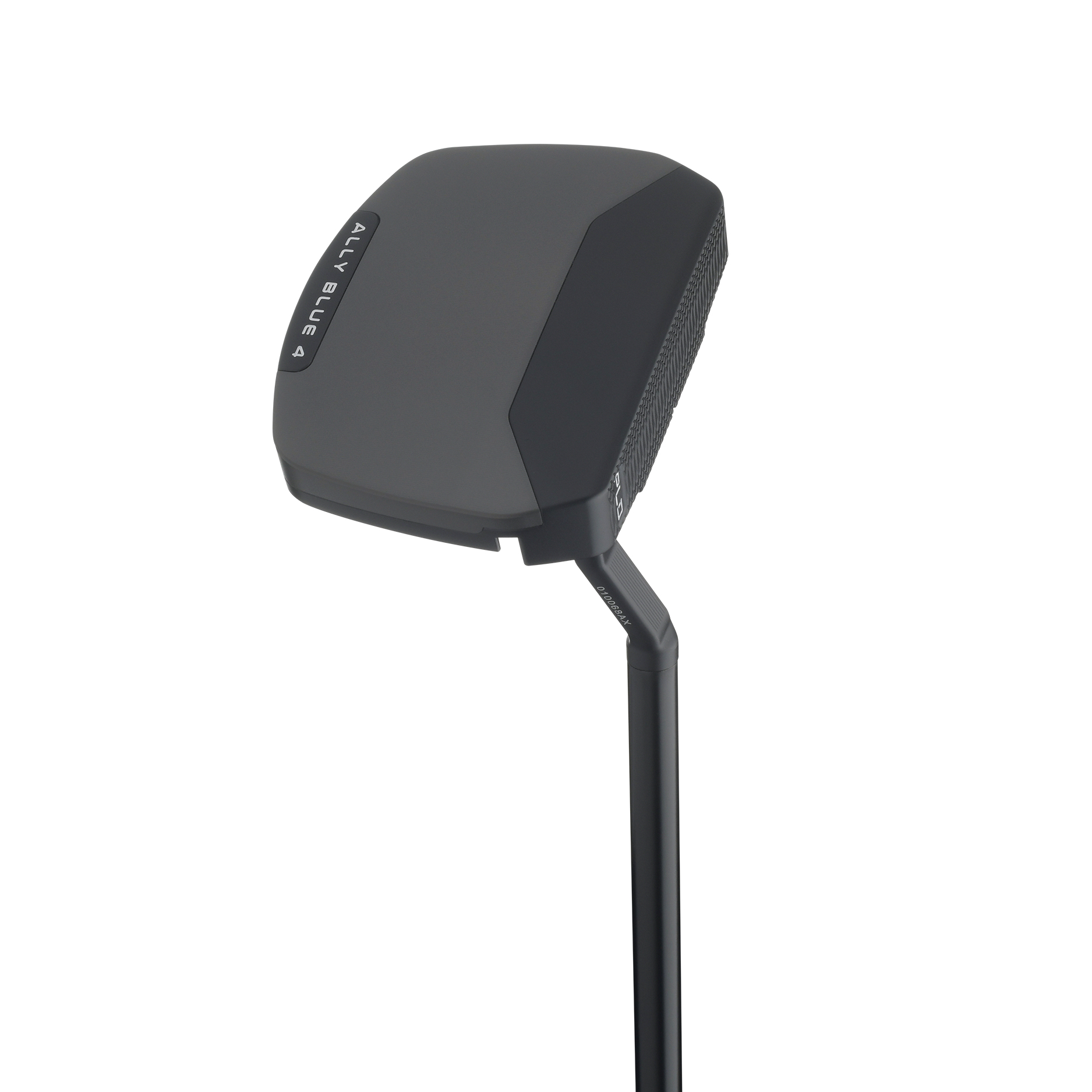
It seems appropriate that the process for milling one of these classic, compact designs takes about the time of a round of golf. Each seems just about as intricate, with these milled designs mixing tour player insight and design-engineer smarts. The angles, curves and weight placements are designed to produce cleaner strokes and smoother roll. The deep-milled face pattern throughout is intended to provide a soft feel.
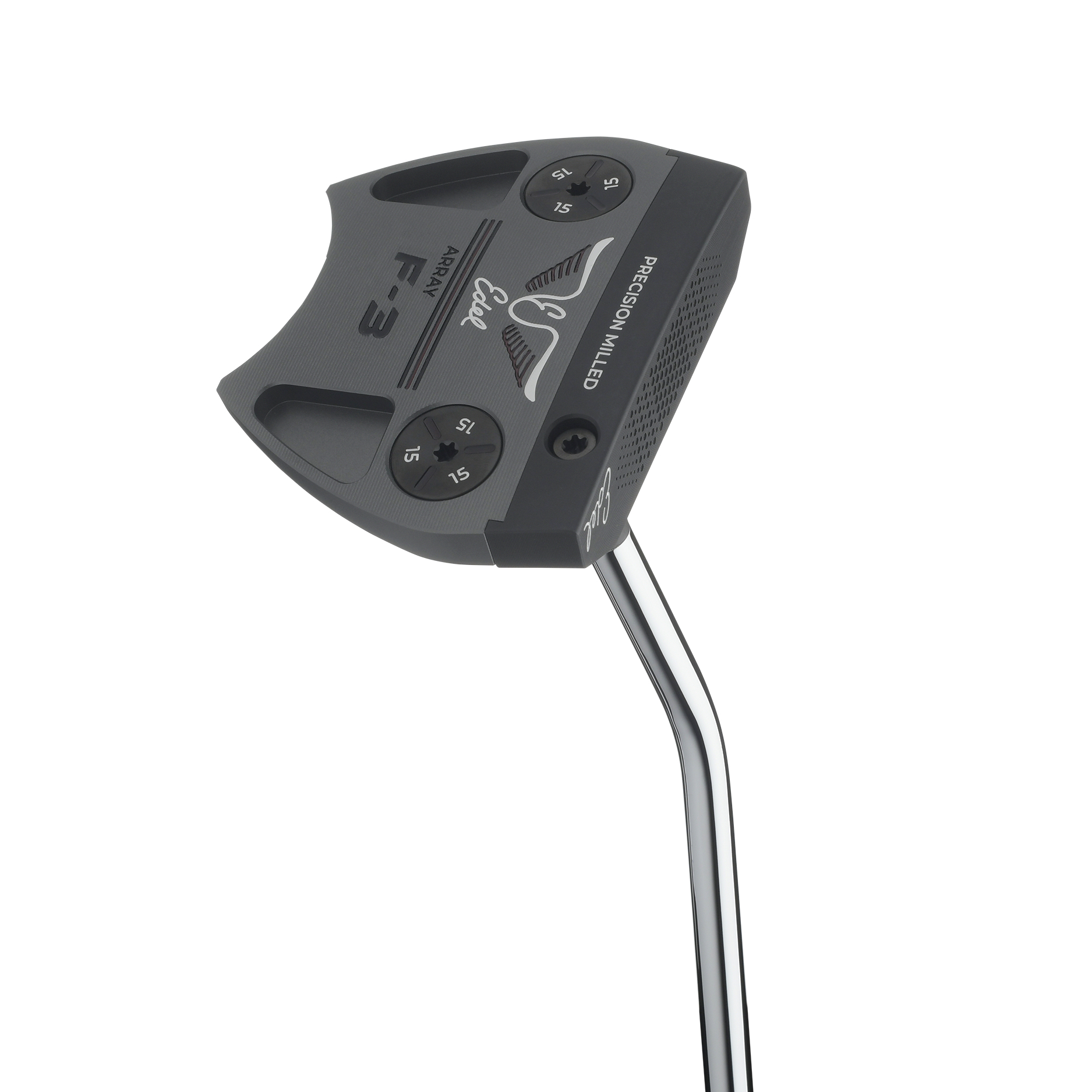
One of the great mysteries of modern times is why driver fittings (the most random of strokes) are so much more popular than putter fittings (the most repeatable of strokes). Edel takes a modular approach to finding your perfect putting match. With these designs you can choose one of three shapes, and each shape accommodates four hosel choices, six alignment options and four grips. Those combine to include 300 intuitive combinations that make finding the ideal putter for your stroke not so mysterious at all.


